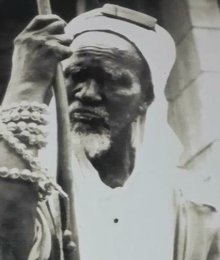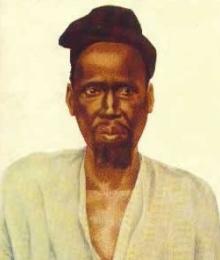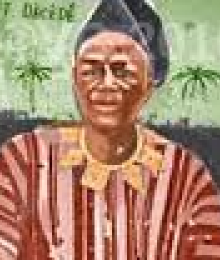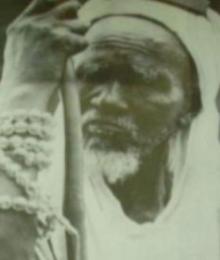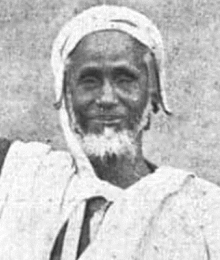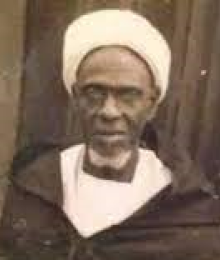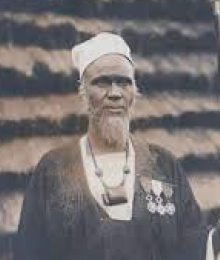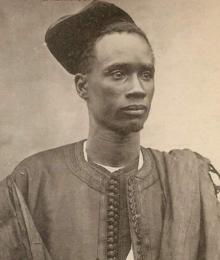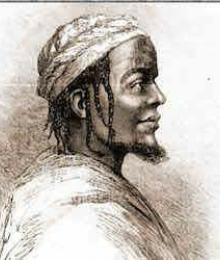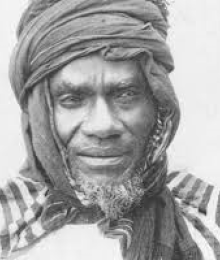
Almamy Samory Touré was a legendary warlord and an emblematic resistant to the French colonization of West Africa in the late 19th century.
Born around 1830 in Miniambaladougou, Guinea, he founded the ephemeral Wassoulou Empire that stretched from Mali to Côte d'Ivoire.
An outstanding military strategist, he fought harshly against the French colonial forces for two decades, winning important victories before finally being defeated and captured in 1898.
His arrest marked the conclusion of the French conquest of West Africa.
Considered the last major independent black leader in the region, Samory Touré has become a symbol of African resistance to colonial domination and an emblematic figure of panafricanism.
Introduction
Almamy Samory Touré, one of the greatest African resistors to colonization, marked the history of West Africa with his fierce struggle against French and British penetration.
Born around 1830 in Miniambaladougou, today's Guinea, Samory Touré was able to forge an ephemeral empire, the Wassoulou, which extended from Siguiri to Mali to the forested regions of Middle Guinea.
His unusual journey, rhythmized by unceasing wars and fierce resistance, made him a symbol of the struggle against colonial domination.
Earlier years
From a family of dioula merchants, Samory Touré grew up in a changing West Africa, marked by the intensification of contacts with Europeans.
Trade with Europe had enriched some African states, while the increasing use of firearms had altered the nature of traditional warfare.
From an early age, Touré was confronted with the difficulties of life, when his mother, Sokhona Camara, was captured and enslaved in a raid led by Sory Bourama of the Cissé clan.
To redeem his mother's freedom, the young Samory puts himself in the service of the Cissé, from whom he learns how to handle weapons. This experience will forge his character and his combat skills.
After serving for "seven years, seven months, seven days", according to tradition, Samory Touré joined other lords, such as the King of Toron, Bitiké-Souané, and the famous Bérété, Saransware-Mori, to perfect his military training.
Empire
In 1861, Samory Touré was appointed kélétigui (chief of war) in Dyala, where he swore to protect his people from the Bérété and the Cissé.
He then created a professional army, appointing his relatives to command positions. From then on, Samory Touré began building his empire, the Wassoulou.
One of the most significant battles of this period was that of Saman-Saman, where Samory Touré faced the kingdoms of Diamoro Adji Diakite and Worokodo Famoudou.
Thanks to his tactical skill and diplomacy, he managed to defeat his opponents without bloodshed, thus sealing his reputation as a faama (emperor) throughout the Mandé.
Over the years, Samory Touré consolidated his grip on key cities such as Kankan, the neural center of dioula trade.
His army, composed of fantassins and cavalry, modernized and adopted European standards. Samory Touré also established commercial and diplomatic ties with other neighbouring empires, such as the Touchful Empire.
Resistance to French colonization (1881-1893)
At the end of the 1870s, the French began their expansion in West Africa, entering into direct conflict with Samory Touré.
The latter attempted to neutralize the French threat by extending its influence to the south, securing a line of communication with Liberia.
In 1886, he signed a treaty of peace and trade with the French, recognizing their area of influence on the left bank of the Niger.
However, tensions persisted, and in 1887, Samory Touré could count on a disciplined army of 30,000 to 35,000 fantassins and 3,000 horsemen.
The French, determined not to let Samory consolidate his positions, exploited the rebellions of submissive animist tribes, forcing Samory to surrender territories between 1886 and 1889.
In 1891, a French expedition attacked Kankan directly, forcing Samory Touré to lead a movement war.
Although he won victories against isolated French columns, such as at Dabadougou in 1891, he failed to completely drive the French out of the heart of his kingdom.
Wars
In June 1892, the French captured Bissandougou, the capital of Wassoulou, bringing a hard blow to Samory Touré.
The cessation of arms sales by the British, concerned to comply with the 1890 Brussels Convention on the Eradication of Slavery, further weakened its position.
In 1893, Samory Touré settled in the Baoulé-Nord area, transforming the agro-pastoral market of Kotia Kofikro into an important slave market until 1898.
Avoiding a direct confrontation with the French, he pursued a policy of burnt land, destroying every plot of land he evacuated.
Defeat
Despite his fierce resistance, Samory Touré must face the material superiority of his enemies. In 1898, after an attack by one of his sons on a French battalion, a retaliatory campaign was launched.
On 29 September 1898, Samory Touré was captured by surprise at Guélémou by Captain Gouraud. His main sons and the remains of his army lay down their weapons, marking the end of his struggle.
Exile in Gabon
After his defeat, Touré was exiled to Gabon, where he died in captivity on 2 June 1900 from pneumonia. His arrest marked the completion of the conquest of West Africa by the colonial powers.
Posterity
Samory Touré leaves behind an indelible legacy. His grandson, Ahmed Sékou Touré, will become the first president of Independent Guinea, advocating an anti-colonial programme.
Samory Touré is thus regarded as an emblematic figure of panafricanism and African resistance to colonial expansion.
Legacy
Beyond his military career, Samory Touré has also left a lasting social and political footprint.
His empire, the Wassoulou, was governed by principles of unity and equality, transcending tribal and ethnic divisions. He was able to create a professional and disciplined army, adopting modern techniques while preserving African traditions.
Samory Touré has also played a crucial role in the development of trade and cultural exchanges in the region.
Its diplomatic relations with other African empires and European powers have helped to open up new channels of communication and exchange.
Conclusion
Almamy Samory Touré will forever remain engraved in the collective memory as one of the greatest African resistors to colonization.
His unusual journey, marked by unwavering determination and a desire to preserve the independence of his people, makes him a true national hero.
His legacy continues to inspire African liberation and renaissance movements, reminding us of the importance of fighting oppression and foreign domination.











